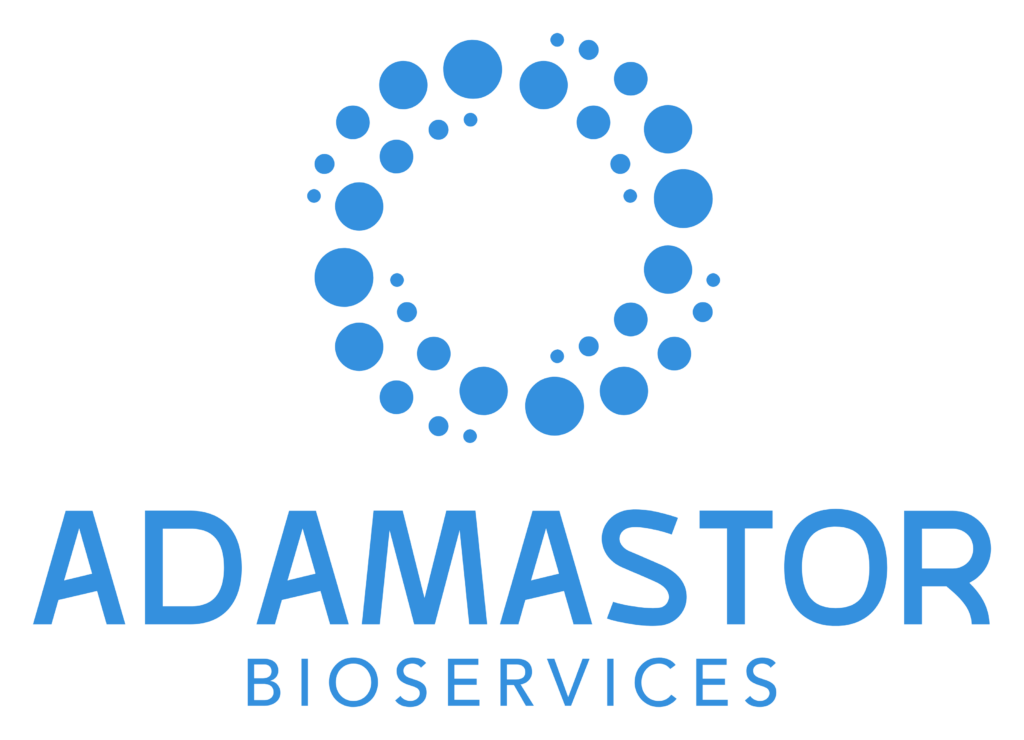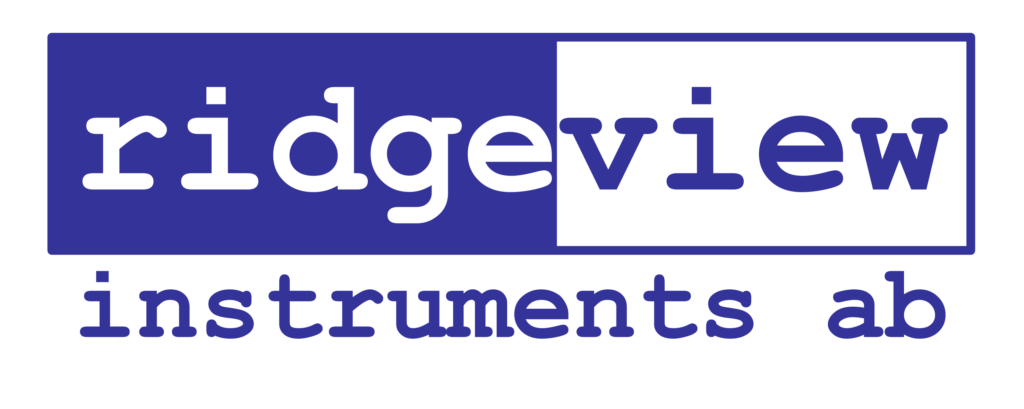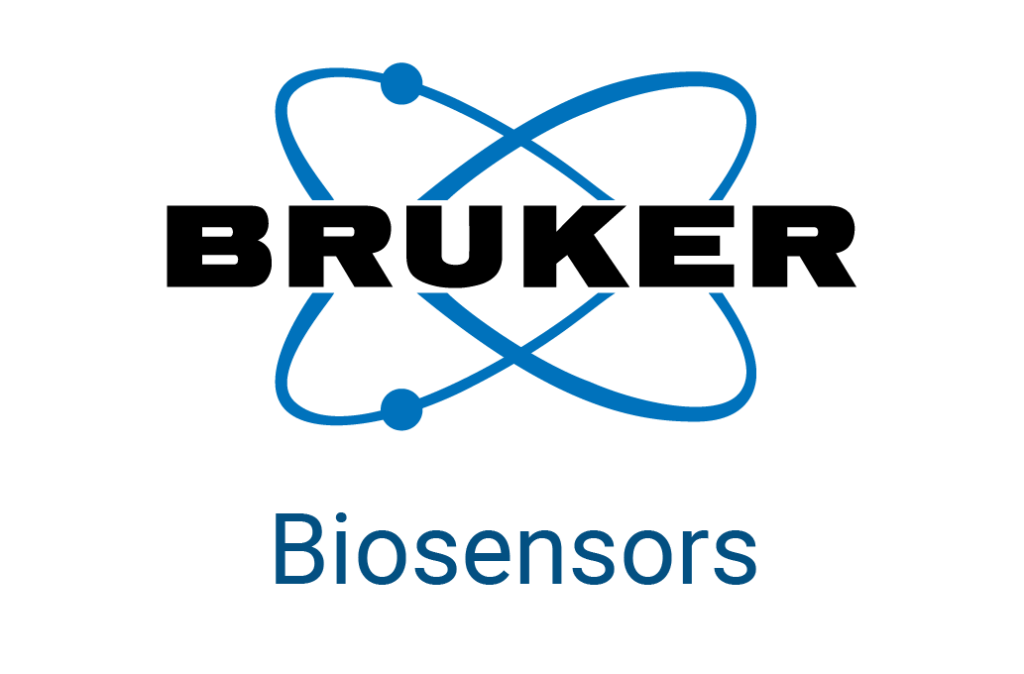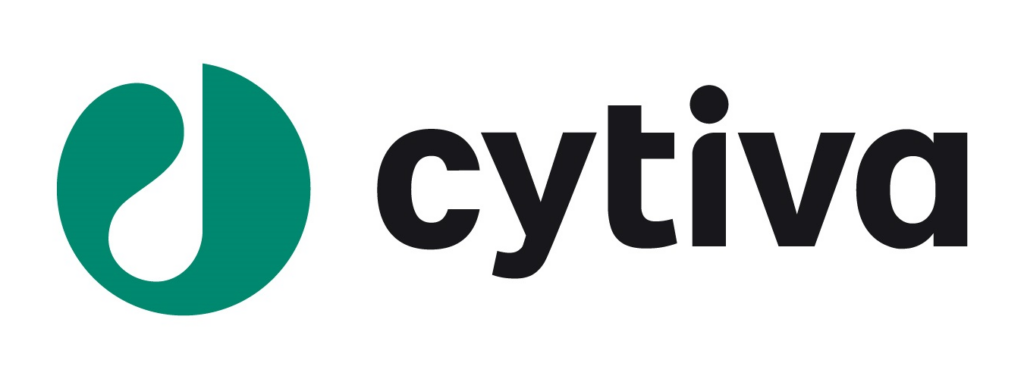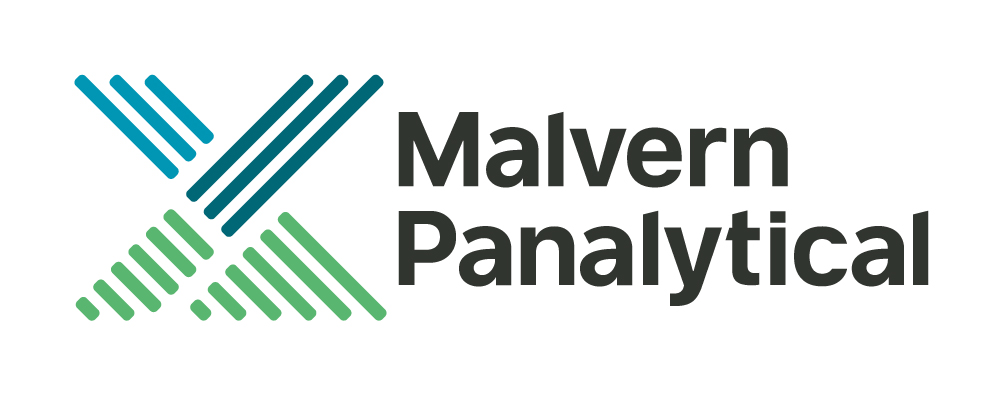ALS2: Biophysical methods for the real-time characterization of biomolecular interactions (Kinetics 2025)
Dates: 31stMarch – 4th April 2025
Location: Institut Pasteur, Paris, France (Pasteur-PFBMI)
Full address: Institut Pasteur, 28 rue du Docteur Roux, 75015 Paris, France
Number of participants: 20
It is no longer possible to apply to participate in this school.
Those selected to participate in the school will be notified on 31st of January 2025.

Description of the course:
The real-time monitoring of binding kinetics provides a much more accurate representation of biological processes than end-point « equilibrium » measurements.
Knowing how fast interaction partners associate and what is the time stability of biomolecular assemblies is crucial to understand the dynamics of living systems.
The objective of the theoretical/practical “Kinetics2025” course is to illustrate the large diversity of biophysical methods that have been developed over the years for the determination of rates of association (kon) and dissociation (koff) in a variety of contexts, and to provide an invaluable opportunity to assess hands-on the strong points of a number of commercially available instruments.
The course will cover different techniques such as:
- Surface-based methods: SPR, BLI, GCI, SwitchSense, QCM,…
- Real-time cell-binding assays
- In-solution methods: stopped-flow, FIDA, kinetic ITC
- Single molecule/particle methods: AFM, magnetic tweezers, mass photometry
Time will also be dedicated to data analysis and FAIR database deposition.
Speakers
- Thomas Bedwell (Fidabio, Bedford, UK)
- Wilfrid Boireau (FEMTO-ST, Besançon, France)
- Osvaldo Burastero (EMBL, Hamburg, Germany)
- Helena Danielson (University of Uppsala, Sweden)
- Jérôme Dejeu (FEMTO-ST, Besançon, France)
- Jan Dohnalek (Institute of Biotechnology, Vestec, Czech Republic)
- João Encarnação (Adamastor Bioservices, Novara, Italy)
- Patrick England (Institut Pasteur, Paris, France)
- Edoardo Fabini (Evotec, Oxford, UK)
- Peter Hinterdorfer (Johannes Kepler University, Linz, Austria)
- Gogulan Karunanithy (Refeyn, Oxford, UK)
- Kelvin Lau (EPFL, Lausanne, Switzerland)
- Julian Plaga (Cytiva, Hamburg, Germany)
- Irene Ponzo (Bruker Biosensors, Munich, Germany)
- Zbynek Prokop (Masaryk University, Brno, Czech Republic)
- Juan Sabin (Affinimeter, Santiago de Compostela, Spain)
- Zhen Wang (Depixus, Paris, France)
Participating companies
Outline of the course:
The course will start on the morning of Monday 31st of March and end on Friday 4th of April in the afternoon, with lectures and round tables in the mornings and practical sessions in the afternoons.
The tutor panel will involve expert users from academia and industry, as well as field application scientists from instrumentation development companies.
The course will provide time slots for exchange between the tutors and participants, as well as between the students. Participants will notably have the opportunity to briefly describe their own projects related to biomolecular interaction kinetics.
Other details:
The course is aimed at scientists with experience in at least one method of kinetic characterization of biomolecular interactions, who wish to deepen their knowledge of the field and acquire new scientific and technical skills. Applicants can be graduate or PhD students, postdoctoral fellows, technicians or engineers, early career or more senior researchers, working in whatever academic or industrial context.
The participants should show that the outcome of the course will be used directly in their projects and activities.
- Registration to the course will be free of charge.
- Daily lunches and coffee breaks will be provided to all participants.
- Candidates can also apply for travel bursaries of up to €500 upon proof of expenses (reimbursed after the course).
Download a pdf version of a flyer for this course via the link below:
Scientific organization committee
- Helena Danielson (Uppsala, Sweden)
- Jérôme Dejeu (Besançon, France)
- Patrick England (Paris, France)
- Kelvin Lau (Lausanne, Switzerland)
The MOSBRI advanced level school, ALS2, was held at Institut Pasteur in Paris in April 2025.
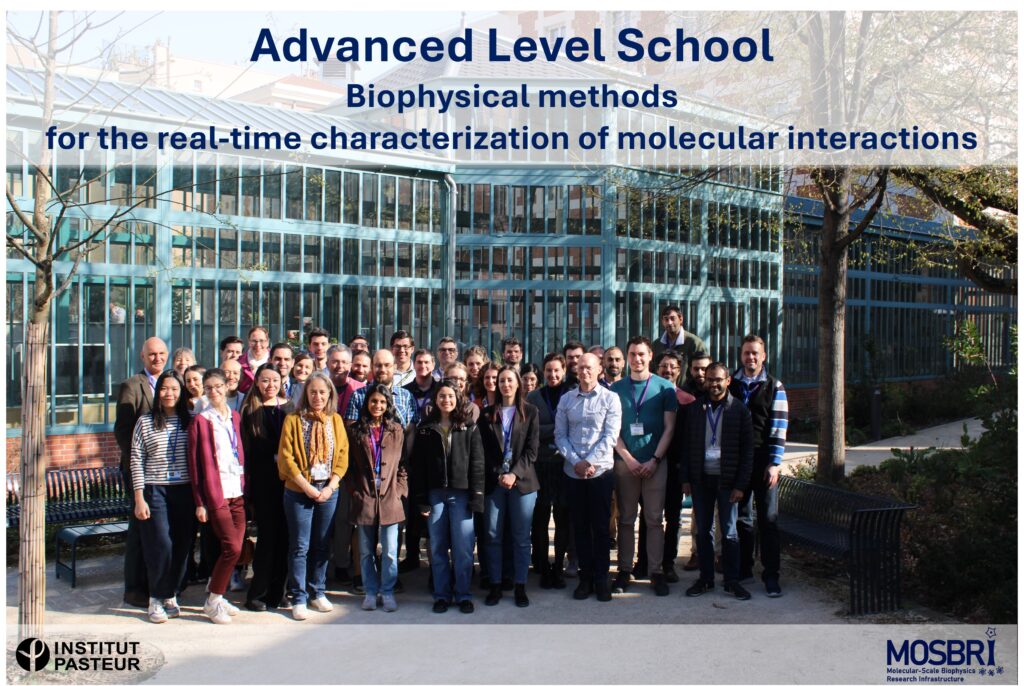
Course programme and links to lectures
Download a pdf file showing an overview of the ALS2 programme from the link below:
| Monday 31st March 2025 | |
| 9h | Introduction |
| Patrick England (Institut Pasteur, Paris, France) | |
| 9h15 | Why is it important to characterize the kinetics of biomolecular interactions? |
| Presentations (30 min each) | |
| Edoardo Fabini (Evotec, Oxford, UK) | |
| Helena Danielson (University of Uppsala, Sweden) | |
| 10h30 | Coffee break |
| 11h | Speed introductions of the trainees, academic trainers, and company representatives |
| 12h30 | Lunch |
| 13h30 | Practical session 1: Meet in lecture Theatre |
| Practical room | |
| Biacore 1S+, Helix Cyto, Ligand Tracer, Gator Prime | |
| PFBMI lab | |
| Fida Neo, Octet RED384, Two MP | |
| PFCCB lab | |
| Creoptix Wave | |
| 18h | End of the day |
| Tuesday 1st April 2025 | |
| 9h | Current panorama of surface-based methods to characterize interaction kinetics |
| Presentation (30 min) | |
| Patrick England | |
| Short talks (5 min each) | |
| – by company representatives | |
| Edward Fitzgerald (Malvern-Panalytical) | |
| Emeric Gueneau (Cytiva) | |
| Benjamin Osborn (Gator Bio) | |
| Stéphane Pinhal (Bruker Biosensors) | |
| Christophe Quétard (Sartorius) | |
| – by trainees | |
| Giang Ngo (QCM-D) | |
| Jaroslav Sita (OWLS and QCM-I) | |
| 10h30 | Coffee break |
| 11h | Data analysis |
| Presentations (20 min each) | |
| Julian Plaga *online* (Cytiva, Hamburg, Germany) | |
| Osvaldo Burastero (EMBL Hamburg, Germany) | |
| Zbynek Prokop (Masaryk University, Brno, Czech Republic) | |
| KintekExplorer tutorial | |
| 12h30 | Lunch |
| 13h30 | Practical session 2: Meet in lecture Theatre |
| Practical room | |
| Biacore 1S+, Helix Cyto, Ligand Tracer, Gator Prime | |
| PFBMI lab | |
| Fida Neo, Octet RED384, Two MP | |
| PFCCB lab | |
| Creoptix Wave | |
| 18h | Social gathering |
| Wednesday 2nd April 2025 | |
| 9h | Interaction kinetics on whole cells and on biomimetic membrane systems |
| Presentations (20 min each) | |
| Wilfrid Boireau (FEMTO-ST, Besançon, France) | |
| João Encarnação (Adamastor Bioservices, Novara, Italy) | |
| Irene Ponzo (Bruker Biosensors, Munich Germany) | |
| Focal Molography | |
| 10h30 | Coffee break |
| 11h | How can we assess the kinetics of conformational changes coupled to binding events? |
| Presentations (20 min each) | |
| Jérôme Dejeu (FEMTO-ST, Besançon, France) | |
| Helena Danielson (University of Uppsala, Sweden) | |
| Zbynek Prokop (Masaryk Uni., Brno, Czech Republic) | |
| 12h30 | Lunch |
| 13h30 | Practical session 3: Meet in lecture Theatre |
| Practical room | |
| Biacore 1S+, Helix Cyto, Ligand Tracer, Gator Prime | |
| PFBMI lab | |
| Fida Neo, Octet RED384, Two MP | PFCCB lab |
| Creoptix Wave | |
| 18h | End of the day |
| Thursday 3rd April 2025 | |
| 9h | Interaction kinetics in solution |
| Presentations (20 min each) | |
| Juan Sabin *online* (Affinimeter, Santiago de Compostela, Spain) | |
| Thomas Bedwell (Fidabio, Bedford, UK) | |
| Zbynek Prokop (Masaryk University, Brno, Czech Republic) | |
| 10h30 | Coffee break |
| 11h | Interaction kinetics at single-molecule level |
| Presentations (20 min each) | |
| Peter Hinterdorfer *online* (Johannes Kepler Uni., Linz, Austria) | |
| Gogulan Karunanithy (Refeyn, Oxford, UK) | |
| Zhen Wang (Depixus, Paris, France) | |
| 12h30 | Lunch |
| 13h30 | Practical session 4: Meet in lecture Theatre |
| Practical room | |
| Biacore 1S+, Helix Cyto, Ligand Tracer, Gator Prime | |
| PFBMI lab | |
| Fida Neo, Octet RED384, Two MP | |
| PFCCB lab | |
| Creoptix Wave | |
| 18h | End of the day |
| Friday 4th April 2025 | |
| 9h | Data analysis and storage |
| Presentations (30 min each) | |
| Jan Dohnalek *online* (Institute of Biotechnology, Vestec, Czech Republic) | |
| Osvaldo Burastero (EMBL Hamburg, Germany) | |
| Zbynek Prokop (Masaryk University, Brno, Czech Republic) | |
| MBDB, KinGenie and KinTek Explorer tutorials | |
| 10h30 | Coffee break |
| 11h | Data fair |
| (animated by Kelvin Lau, EPFL, Lausanne, Switzerland) | |
| How to optimize data quality and analysis? | |
| Interactive discussion with audience dataset inputs | |
| Concluding remarks | |
| (Patrick England) | |
| 12h30 | Lunch |
| 13h30 | End of the course and wrap-up |
Application to take part in the course
The course is limited to 20 participants and therefore any interested parties will need to submit an application for consideration to take part.
Who is eligible to apply:
Anyone with a workplace/host institution in one of the EU member or associated states may apply to attend this course (this includes people from the UK). Applicants from industry are also welcome. It is expected that the applicant has at least a basic knowledge of molecular biology, biochemistry and/or biophysics and that the topic of the course is applicable to their area of research/work. Applications from scientists in the early-stage of their career are particularly encouraged and we will strive to obtain a gender balance of the participants in the course.
How to apply:
The application consists of:
- submission of a completed course application form which includes:
- motivation for attendance
- a short scientific CV
- if you are a student or postdoc, a reference letter.
Once the application period is closed, all submissions will be reviewed and the applicants will be informed of the outcome.
When to apply:
It is no longer possible to apply for this school. The applications received are under review and applicants will be informed once a decision has been made.
Application deadline:
The deadline for submission of an application to participate in this school was the: 17th January 2025.
